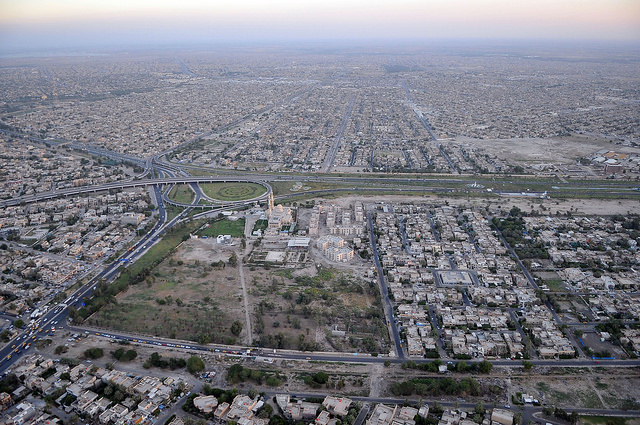 Courtesy of State Dept.
Courtesy of State Dept.
After ISIS: Issues and Questions for Stability
If you follow the news closely, it seems that everyone has an answer on how to weaken or destroy ISIS. However, it seems that very few people are having the conversation on what happens after ISIS. The region is completely destabilized, with Iraq and Syria barely holding together their borders, Saudi Arabia and Iran fighting a proxy war for regional hegemony, and international actors (state and non-state) are seemingly flocking from all corners of the earth to be involved in the Syrian Civil War.
Does the world just expect ISIS to be defeated and suddenly everything will be alright?
To assume that the region will just stabilize itself is a mistake that will lead to decades of conflict and international (including U.S.) involvement in the region, with no end in sight. Therefore, all international, regional, and local actors must avoid the mistakes of the past, and start considering what issues and questions will present themselves after the assumed destruction of ISIS.
- There will be issues regarding the legitimacy and stability of the Syrian and Iraqi governments. Focusing on Iraq, there are multiple issues that will threaten government stability, from distrust of the primarily Shiite government, to the growing influence of independent militias who have occupied the vacuum that the Iraqi army could not. Syria is in the same boat. With a government that supports the use of siege tactics for political gain; popular support will be hard to come by after the war.
- Russia and the United States need to realize that they will not be able to satisfy all of their diplomatic, economic, and military objectives for the region. Though it should be attainable to satisfy certain aspects of each country’s interests, compromise will be necessary for the overall stabilization of the region. If Russia and the U.S. refuse to recognize this, both nations will end up paying financially and in soldiers’ lives for repeating the mistakes of the past.
- Reconstruction efforts are going to be long and expensive, and the international community (Non-Governmental Organizations, such as Non-profits, Intergovernmental Organizations such as the United Nations, and Multi National Corporations) must plan properly. With reports coming out on misspent reconstruction funds in Iraq, Afghanistan, and Haiti, the international community at large must become more efficient in how it funds reconstruction efforts.
- The civilians who were ruled by ISIS will have trouble integrating themselves back into a civilian run government and society considering they were ruled by a ruthless, religion-based government, and there are millions of refugees that may return to their families in Syria after the war. If these civilians are ostracized or prevented from peacefully returning to their respective countries, then we can expect stability issues in the future.
- What has the international and regional actors considered about the politics of reconstruction? Every group will be vying for resources and to favor one group over another could have horrible consequences for the future. All actors involved must again focus on short term stability that doesn’t impede long term progress. Then we must focus on long term solutions for the region.
- There needs to be an acceptance that the regional actors involved will have a greater role in the stability of the region, and they should. With the Syrian Government and the rebel forces possibly having peace talks sponsored by the United Nations, regional actors need to realize they have a stake in regional stability. Turkey, Saudi Arabia, and Iran will be the driving forces that determine what future conflicts will be faced in the Middle East.
- What is the United States’ role in Middle Eastern stability? To promote regional solutions to the issues through diplomacy and economic engagement with regional actors. The United States should recognize that the ultimate solutions lie with the people of the Middle East. To force a non-region based solution on the issues at hand would only end in a rejection of the United States as a future mediator for regional issues.






Have the Middle Eastern nations stepped forward to accept their responsibilities for stabilization? Europe and the United Nations? Refugees are flocking to Europe in droves. This is far from a “United States problem and lead responsibility”. Why hasn’t our Ambassador to the United Nations stepped forward with something for the Security Council and General Assembly?